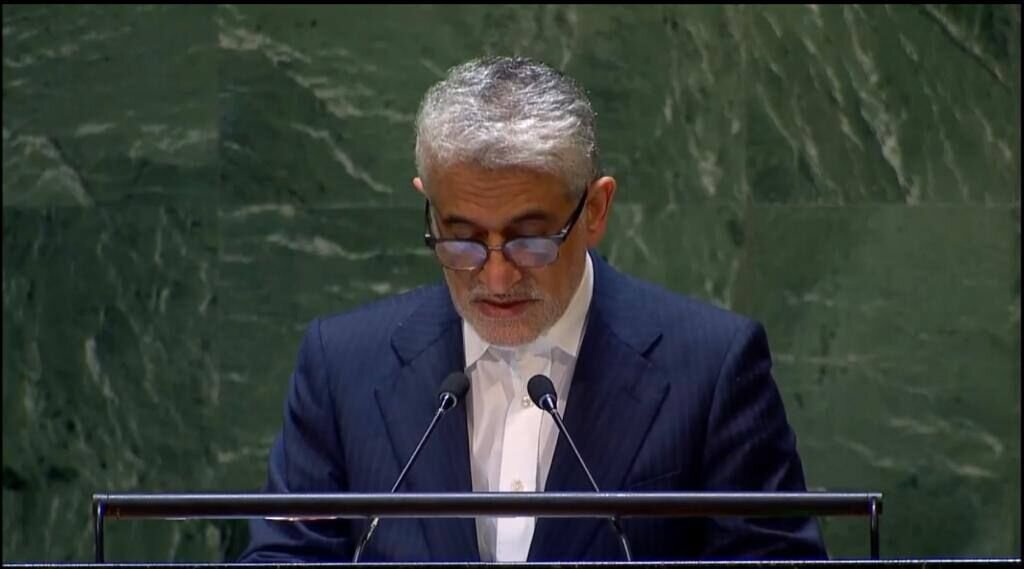Multilateralism needed to attain SDGs in water sector, Iran says

TEHRAN - To achieve sustainable development goals in the water sector, multilateralism should be upheld, Iranian Ambassador to the United Nations Amir-Saeed Iravani has said.
“We are at a critical juncture; many countries are on the threshold of a water crisis, and many others will face these extreme challenges soon.
This is a global challenge, and a genuine partnership is critical to mobilize international financial resources, transfer of technology and know-how, and enhance capacity building for sustainable water management of developing countries.”
To accomplish our shared objectives, we must uphold multilateralism, strengthen regional and international solidarity and cooperation, and the United Nations should fulfill its crucial function in this regard, Iravani said at the UN 2023 Water Conference in New York on March 24.
“As a semi-arid country with limited water resources, the Islamic Republic of Iran is experiencing the impact of global climate change with profound consequences.
Similar to other parts of the world, my country is affected by environmental degradation. The impact includes changes in precipitation patterns, persistent droughts, heat stress, sand and dust storms, air and water pollution, soil erosion, as well as loss of biodiversity, habitats, and natural resources.”
“As a basic need and right, the Islamic Republic of Iran has made great efforts and will continue its endeavors to ensure that everyone has access to clean, safe, and reliable water as well as sanitary facilities.
Having developed its National Water Management Plan and Strategy in consultation with a range of stakeholders, including key government counterparts and private sectors, the Islamic Republic of Iran has set the following policy priorities in order to carry out its national sustainable development goals and plans: 1) improving water governance, 2) gathering and processing data and information, 3) mobilizing national financial resources, 4) developing capacity building, and 5) innovation.”
“The plan aims to promote sustainable water use and management, improve water efficiency, address water scarcity and pollution, reduce water waste, promote water-saving technologies, improve irrigation systems, and increase climate resilience.
Another top priority for Iran is to increase the sustainability of agricultural production, improve public health, reduce water use overall, particularly in the agriculture sector, implement market-based reforms, restore water resources, increase local and national public awareness, build infrastructure, use water in an emergency and develop greenhouse plantations, using an integrated water approach.”
“To close the gap between the village and the city as one of the mean priorities, the Government has established the Water Supply Campaign, such that the rural water network can serve 100% of the rural regions by 2030. Nowadays, access to drinking water facilities is available in 86% of our villages and 99.9% of our cities.”
“Like other targeted states, the Islamic Republic of Iran is negatively impacted by the inhumane and cruel unilateral coercive measures. The impact of UCMs on people's access to food, water, and healthcare is significant.
The SDGs, including access to clean water and sanitation in targeted States, are hampered by the UCMs, with adverse impacts on human rights, particularly the right to development, the right to health, the right to life, and the right to access environmentally friendly technologies.”
“The Islamic Republic of Iran is the fifth-largest Country in terms of the number of refugees it hosts. Despite the previously said challenges, particularly the UCMs and the water scarcity, more than 5 million Afghan refugees live in Iran for the time being. It is irrefutable that immediate international assistance is required to fulfill their needs.”
MG
Leave a Comment